L & F Lab
The Land use and Food systems Lab at the University of Edinburgh
The Land use and Food systems (L&F) Lab is an interdisciplinary group modelling global food systems. Combining expertise from ecology, engineering, economics and social science, we apply state-of-the-art models to understand the social, economic and ecological interactions and trade-offs in globally interconnected land use systems. We are a core part of the international collaboration that has produced the Land System Modular Model (http://www.landsymm.earth), and conceived, designed and implement the PLUM model that is a central part of LandSyMM.
Current projects include:
-
- “Co-designing Holistic Forest-based Policy Pathways for Climate Change Mitigation (ForestPaths)” receiving €6M funding from EU’s Horizon Europe programme, 2022-2026.
- “TRAnsforming the DEbate about livestock systems transformation (TRADE)” funded by UKRI under the Transforming the UK Food System for Healthy People and a Healthy Environment Programme, 2022-2025
- “Joined-up land use strategies tackling climate change and biodiversity loss (MOSAIC)” receiving €6M funding from EU’s Horizon Europe programme, 2023-2028.
- Building for health centred, net zero aligned Food Systems Transformation – A Living Good Food Nation Lab a Wellcome Trust funded project, 2023-2026
- Scottish Alliance for Food: health, equity and sustainability (SCAF) a project funded by Scottish Government, 2023-2026.
The research group also supervises students’ dissertations.
We welcome proposals for engaging with your research projects, including supervising research students. Please have a look at the previous research projects and papers below, as well as the topics considered by current and former students.
Research Staff & Students
 Professor Peter Alexander
Professor Peter Alexander
Personal Chair in Global Food Systems
Peter leads the group and his main interests are the interactions within national and global food systems and land use, combining social, economic and environmental considerations. His research applies data and computationally intensive techniques, such as agent-based modelling, to improve understanding of the human-natural interactions including behavioural aspects of decision making. Prior to his academic career, Peter ran a livestock farm in Scotland and before this worked as a quantitative financial modeller in investment banks.
He was a Lead Author on IPCC WGII on Impacts, Adaptation and Vulnerability (Interview on IPCC report – March 2022). He is currently a Coordinating Lead Author on UNEP’s 7th Global Environmental Outlook (GEO-7), and is a Lead Author on the IPBES Spatial Planning and Connectivity Assessment. He has also been involved in media coverage on his research, for example, Ukraine war food impacts, Interview on CNBC – June 2022, The Conversation Sep 2022, Feb 2023, June 2023, Feb 2024, and Pet food sustainablity.
Edinburgh Research Explorer / Google Scholar
 Dr Joe Kennedy
Dr Joe Kennedy
Postdoctoral Researcher
Joe has a research background in theoretical physics and cosmology with a focus on developing methods to test competing models of cosmic acceleration. After completing his PhD at the University of Edinburgh, he moved to the University of Geneva to pursue research in the use of artificial intelligence methods to test fundamental physics with cosmological data. Motivated by the urgent need to tackle the interconnected challenges of climate change, public health and biodiversity loss he has now switched fields to put his experience in physics to use in more terrestrial applications. With support from the Wellcome Trust, together with Peter Alexander and Lindsay Jaacks (Global Academy of Agriculture and Food Security), he is now developing a simulation model to assess the impact of red meat taxes and health and environment warning labels on red meat products on the incidence of chronic diseases in the US.
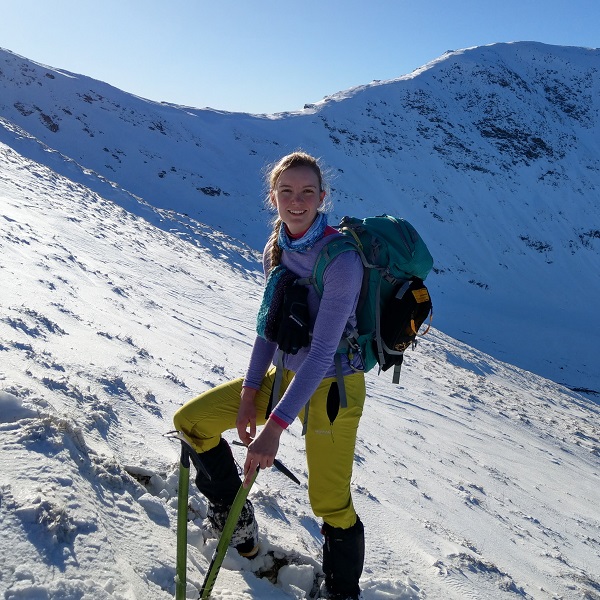 Dr Roslyn Henry
Dr Roslyn Henry
Lecturer at University of Aberdeen
Roslyn’s research interests lie in exploring the interplay between food security, land use and biodiversity. Her background is in ecology and evolution and she completed her PhD at the University of Aberdeen. After spending years working on PLUM as part of the group has returned to University of Abereen, but contiunes to work with the group.
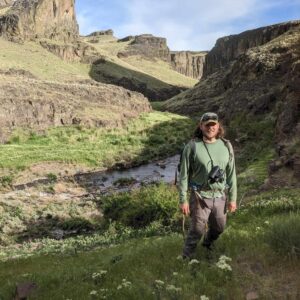 Dr Jay Burns
Dr Jay Burns
Postdoctoral Researcher
Jay has a wide range of interests in food systems research, particularly with respect to livestock production, and using a range of methodologies including simulation models, econometrics and carbon footprinting. He is currently working on the UKRI funded ‘TRADE’ project, which aims to identify and test desirable scenarios of future livestock systems, and bring stakeholders together to map how we get there.
 Dr Elise Gallois
Dr Elise Gallois
Postdoctoral Researcher
Elise is a quantitative ecologist with a background in cold ecosystem vegetation change and global health ecology. She completed her PhD at the University of Edinburgh focusing on alpine and Arctic tundra phenology. She has since worked as a data scientist at the Natural History Museum focusing on spatial models of vaccine stockpile optimisation, and the development of quantitative AI assistants. Elise is now working with the UK Centre for Ecology and Hydrology (UKCEH) as part of the uPcycle project, helping to develop and deploy a global phosphorus dashboard and modelling the impacts of phosphorus emissions on freshwater systems.
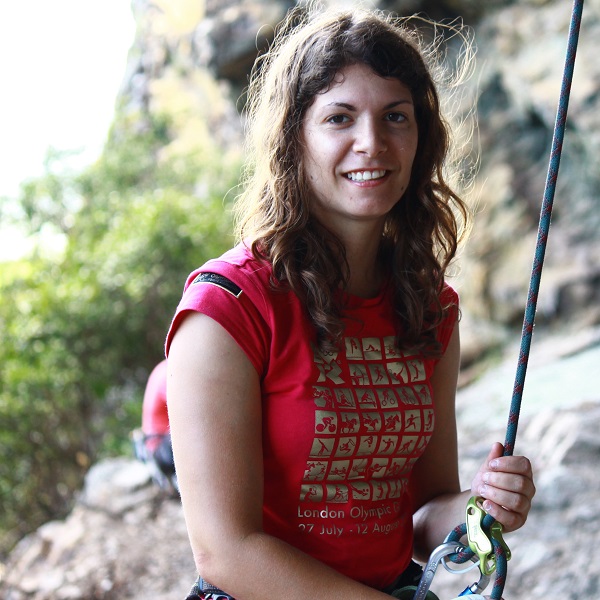 Dr Juliette Maire
Dr Juliette Maire
Researcher at Trinity Agtech
Juliette has just completed her PhD at the University of Edinburgh on novel approaches to capture spatial and temporal variability of nitrous oxide emissions from grazed grassland in the UK and in Ireland. Prior to her PhD, she worked as an engineer and research assistant in Australia, France and Scotland on topics from monitoring forest phenology using an automated camera to modelling European crops rotation to assess the cost efficiency and environmental benefices of adding more legumes into the rotation. Juliette has a background on the sustainable development of agriculture and agroecology. She contiunes to work and publish with the group but has now moved to work at Trinity Agtech.
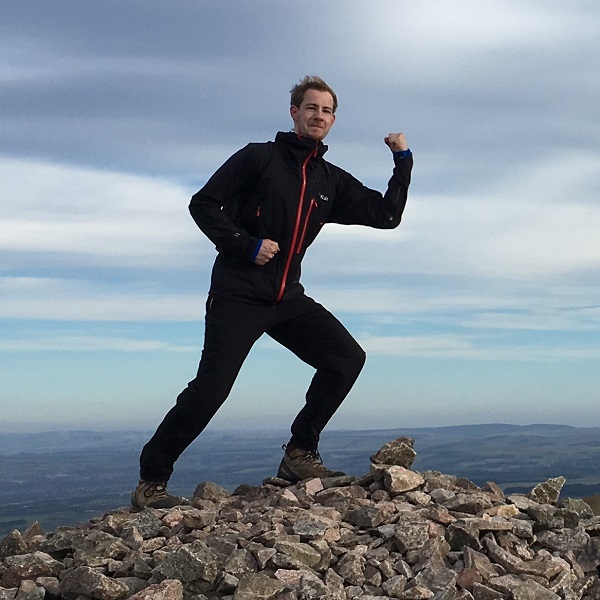 Magnus Merkle
Magnus Merkle
Former Research Assistant and now PhD Candidate at Norwegian University of Life Sciences.
Magnus has studied Sociology, Politics & Economics in Germany and Ecological Economics in Edinburgh. He worked on the interrelations between market power and food system resilience in the RUGS project as well as on the quantification of socioeconomic scenarios for climate impact research in the UK SSP project. However is now doing a PhD at Norwegian University of Life Sciences, although still working and publishing with the group.
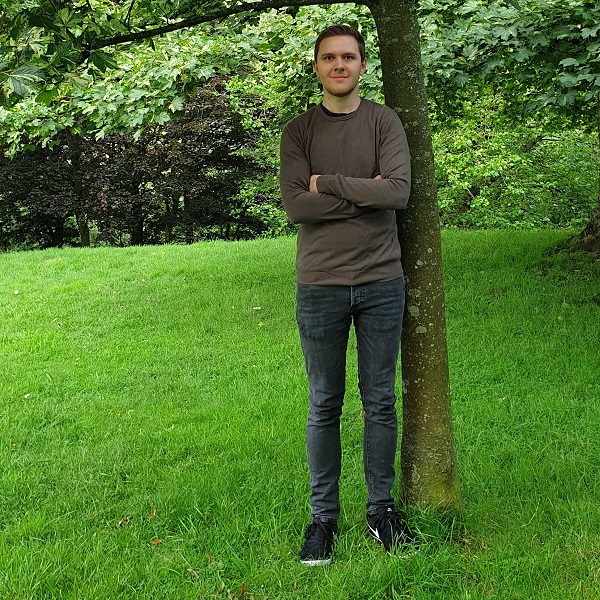 Bart Arendarczyk
Bart Arendarczyk
Postdoctoral Researcher
As part of his PhD, Bart is investigating options for land based mitigation of climate change using a global land use modelling framework (PLUM-LPJ-GUESS). This includes looking at trade-offs between food security, carbon emissions, protecting biodiversity, and maintaining ecosystem services.
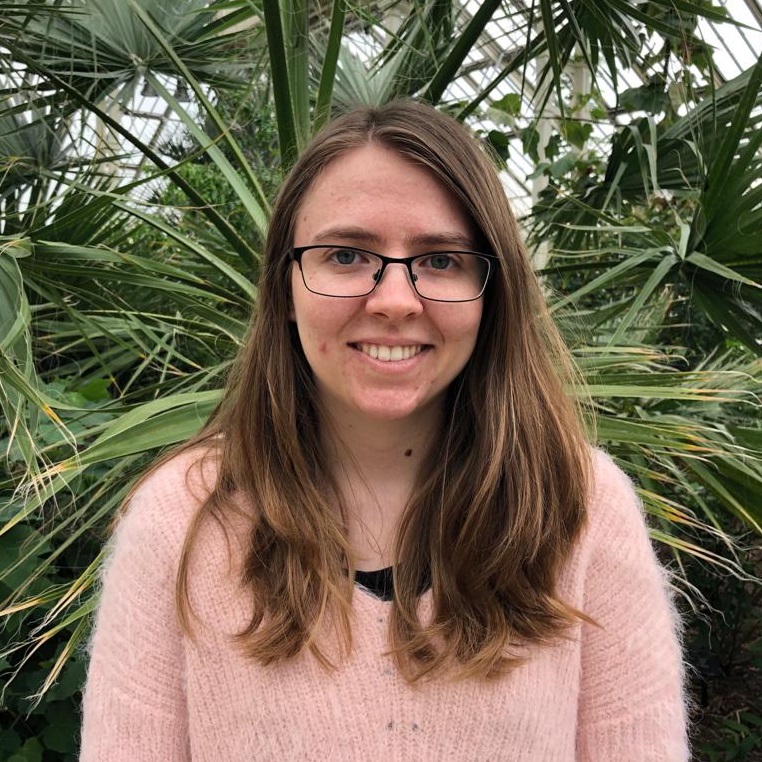 Tamsin Woodman
Tamsin Woodman
Postdoctoral Researcher
Sustainably increasing global food production while preventing negative impacts on biodiversity poses a major challenge to society. Current ecological models predict the effect of climate change on biodiversity at a range of spatial scales, but they do not account for the impact of land use change. Tamsin’s PhD aims to integrate ecological and land use models to investigate the combined effects of land use and climate change on the spatial dynamics of pollinators and crop pests, and potential feedbacks on crop productivity and future land use scenarios.
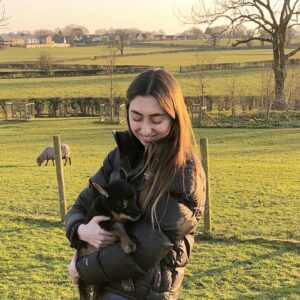 Kirsty Blair
Kirsty Blair
PhD Candidate
Kirsty came to Edinburgh from the University of Leeds, where she completed an MEnv in Sustainability and Environmental Management. She also spent a year at the University of Adelaide in Australia learning about indigenous culture and making the most of the hiking and outdoor activities on offer. She has recently begun her 1+3 doctoral training programme. Her research will be investigating the competing socio-cultural and environmental narratives around livestock consumption in different cultural contexts, and the role that relational values have to play in these narratives.
 Aimen Sattar
Aimen Sattar
PhD Candidate
Aimen is a PhD candidate at the Global Academy of Agriculture and Food Systems, focusing on modelling the agricultural system in Egypt. He will develop a model to investigate the interaction between water resources, farmer cropping decisions, and government policy. Aimen has an engineering background, having previously completed an MEng in Mechanical Engineering and an MPhil in Engineering for Sustainable Development, and worked as a subsea design engineer. Before joining the University of Edinburgh, Aimen spent 4 years working in the humanitarian sector, helping to deliver medical projects in Africa and the Middle East.
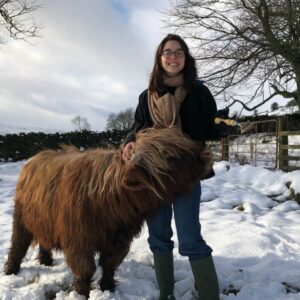 Kaia Waxenberg
Kaia Waxenberg
PhD Candidate
Kaia is a PhD candidate at the Global Academy of Agriculture and Food Security, using modelling approaches to investigate micronutrient provision through the global food system. Her prior research focused on modelling greenhouse gas emissions from UK farms, and she played a crucial role in developing “Agrecalc,” a prominent carbon calculator for the food industry. Kaia holds an MSc in Environmental Protection and Management from the University of Edinburgh and a BA in Natural Sciences from the University of Cambridge. Her research aims to leverage insights from big data to enhance both environmental and health outcomes within the food system.
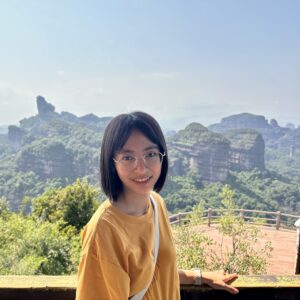 Jia Zhou
Jia Zhou
PhD candidate at Karlsruhe Institute of Technology, IMK-IFU
Jia is a PhD candidate at Karlsruhe Institute of Technology, Campus Alpin since August, 2023. Based in Garmisch-Partenkirchen, but is co-supervised by Peter. Jia completed her master’s degree in Environmental Economics from Wageningen University in the Netherlands in 2023. She comes from a multidisciplinary background with a bachelor’s degree in agronomy and a minor in finance from China Agricultural University. Her scientific research interests lie where economic modelling, ecosystem services quantification, regenerative agriculture and bioenergy. She focuses on the land use change model (PLUM) using data analysis methods to assess the potential impacts of trade in land-based commodities and related policies on future land use transitions.
 John Harvey
John Harvey
PhD candidate
John’s research interest is in the environmental impacts of feeding pets (cats and dogs), including how feeding behaviours might be changed and exploring approaches to differentiating the environmental impacts of prime meat and animal byproducts. His background is as a practicing veterinary surgeon and working in the international development and animal welfare sectors. John has completed master’s degrees in international development and sustainability, and his research approach reflects his cross-disciplinary background.
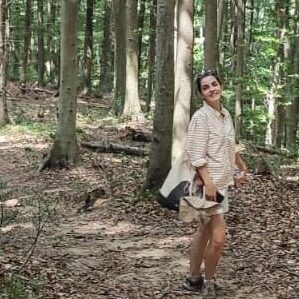 Neriman Erdem
Neriman Erdem
Visting PhD candidate from Istanbul Technical University
Neriman is a PhD candidate at the Eurasian Institute of Earth Sciences, Istanbul Technical University. She holds a master’s degree with work on plant-based antimicrobials in food science. Her interest in the cultural ecology and roots of food systems led to her current field. Her research focuses on modeling the connections between historical/archeological agricultural systems, climate changes, and land use transformations in Central Anatolia, Turkey. As a visiting researcher in the Land Use and Food Systems Lab, Neriman aims to enhance her research by using an alternative agent-based model, CRAFTY, and gaining insights into the variations in simulating historical land use patterns between different models.
Completed PhD and selected MSc Projects
2025
- Alexander Vonderschmidt (PhD):
- Kaela Connors (PhD):
2024
- Bart Arendarczyk (PhD):
- Tamsin Woodman (PhD):
2022
- Florian Payen (PhD): Identifying ways to reduce greenhouse gas emissions through enhanced carbon sequestration in vineyard soils: A case study of Mediterranean vineyards in southern France
- Vicky Farkasova (MSc): Estimating the costs and benefits from controlling feral pigs in Australia
2021
- Xandy Dembinski (MSc): The Consumer Acceptance of Cultured Meat Among Young Adults in the UK
- Sitian Shen (MSc): the change and environmental impacts of pet food consumption by companion dogs and cats in a developing county-level city – Haining in China
- Yi Zhang (MSc): Assessment of Land Area Require for Global Population Under National Dietary Patterns: A HALF Method Application
2020
- Maggie March (PhD): Assessing the performance and sustainability of dairy farming systems.
- Harry Kamilaris (PhD): Modelling of alternative management practices for sustainable beef finishing systems
2019
- Magnus Merkle (MSc): Carbon emission reductions and employment effects – A twofold investigation of policy evaluation and empirical pathways using input-output data based structural decomposition
2018
- Matteo Sposato (MSc): Exploring deforestation in Rondônia, Brazil, by combining agent-based modelling, GIS and linear programming
- Anji Reddy (MSc): Capacity for change through marginal gains: Exploring potential reductions in land used to produce food
2017
- Kerstin Engström (PhD): Pathways to future cropland: Assessing uncertainties in socio-economic processes by applying a global land-use model
2016
- Clare Dias (MSc): Using insects as an alternative protein source in Scotland: Ecological impacts and consumer perspectives
2015
- Jiao Lu (MSc): The impacts of policy changes on perennial energy crops market in the UK
Some select papers
Woodman, T.L., Alexander, P., Burslem, D.F.R.P., Travis, J.M.J., Winkler, K., Eigenbrod, F., 2025. Global assessment of landscape pattern changes from 1992 to 2020. Landsc Ecol 40, 196. https://doi.org/10.1007/s10980-025-02210-0
Garrett, R., Meyfroidt, P., De Bremond, A., Wartenberg, A., Barbieri, L., Fernández-Llamazares, Á., Acheampong, E., Addoah, T., Adeleye, M., Alexander, P., Brandão, J., Coomes, D.A., Ellis, E.C., Fajardo, J., Jacobi, J., Leach, M., Lele, S., Llanque Zonta, A., Lyons-White, J., Martin, A., Messerli, P., Milner-Gulland, E.J., Müller, D., Mills, M., Nantongo Kalunda, P., Pascual, U., Rueda, X., Ryan, C., Setty, S., Pham, T.T., Zagaria, C., 2025. Policy principles for sustainable and just land systems. R. Soc. Open Sci. 12, 250810. https://doi.org/10.1098/rsos.250810
McQuaid, C.F., Clark, R.A., White, R.G., Bakker, R., Alexander, P., Henry, R., Velayutham, B., Muniyandi, M., Sinha, P., Bhargava, M., Bhargava, A., Houben, R.M.G.J., 2025. Estimating the epidemiological and economic impact of providing nutritional care for tuberculosis-affected households across India: a modelling study. The Lancet Global Health S2214109X24005059. https://doi.org/10.1016/S2214-109X(24)00505-9
Stehl, J., Vonderschmidt, A., Vollmer, S., Alexander, P., Jaacks, L.M., 2025. Gap between national food production and food-based dietary guidance highlights lack of national self-sufficiency. Nat Food. https://doi.org/10.1038/s43016-025-01173-4
Sattar, A., Brown, C., Rounsevell, M., Alexander, P., 2024. Typology analysis of Egyptian agricultural households reveals increasing income diversification and abandonment of agricultural activities. Agricultural Systems 218, 104000. https://doi.org/10.1016/j.agsy.2024.104000
Vonderschmidt, A., Jaacks, L.M., Alexander, P., Green, R., Bellows, A.L., Stewart, C., 2024. Smaller meat portions contribute the most to reducing meat consumption in the United Kingdom. Nat Food. https://doi.org/10.1038/s43016-024-01070-2
Brownlie, W.J., Alexander, P., Maslin, M., Cañedo-Argüelles, M., Sutton, M.A., Spears, B.M., 2024. Global food security threatened by potassium neglect. Nature Food. https://doi.org/10.1038/s43016-024-00929-8
Kennedy, J., Alexander, P., Taillie, L.S., Jaacks, L.M., 2024. Estimated effects of reductions in processed meat consumption and unprocessed red meat consumption on occurrences of type 2 diabetes, cardiovascular disease, colorectal cancer, and mortality in the USA: a microsimulation study. The Lancet Planetary Health 8, e441–e451. https://doi.org/10.1016/S2542-5196(24)00118-9
Vonderschmidt, A., Arendarczyk, B., Jaacks, L.M., Bellows, A.L., Alexander, P., 2024. Analysis combining the multiple FAO food balance sheet datasets needs careful treatment. The Lancet Planetary Health 8, e69–e71. https://doi.org/10.1016/S2542-5196(23)00276-0
Alexander, P., Arneth, A., Henry, R., Maire, J., Rabin, S., Rounsevell, M.D.A., 2023. High energy and fertilizer prices are more damaging than food export curtailment from Ukraine and Russia for food prices, health and the environment. Nature Food 4, 84–95. https://doi.org/10.1038/s43016-022-00659-9
Alexander, P., Henry, R., Rabin, S., Arneth, A., Rounsevell, M., 2023. Mapping the shared socio-economic pathways onto the Nature Futures Framework at the global scale. Sustainablity Science https://doi.org/10.1007/s11625-023-01415-z
Blair, K.J., Moran, D., Alexander, P., 2023. Worldviews, values and perspectives towards the future of the livestock sector. Agriculture and Human Values. https://doi.org/10.1007/s10460-023-10469-9
Perkins, O., Alexander, P., Arneth, A., Brown, C., Millington, J.D.A., Rounsevell, M., 2023. Toward quantification of the feasible potential of land-based carbon dioxide removal. One Earth 6, 1638–1651. https://doi.org/10.1016/j.oneear.2023.11.011
Woodman, T.L., Rueda-Uribe, C., Henry, R.C., Burslem, D.F.R.P., Travis, J.M.J., Alexander, P., 2023. Introducing LandScaleR: A novel method for spatial downscaling of land use projections. Environmental Modelling & Software 169, 105826. https://doi.org/10.1016/j.envsoft.2023.105826
Henry, R.C., Arneth, A., Jung, M., Rabin, S.S., Rounsevell, M.D., Warren, F., Alexander, P., 2022. Global and regional health and food security under strict conservation scenarios. Nature Sustainablity, https://doi.org/10.1038/s41893-021-00844-x
Maire, J., Sattar, A., Henry, R., Warren, F., Merkle, M., Rounsevell, M., Alexander, P., 2022. How different COVID-19 recovery paths affect human health environmental sustainability and food affordability. Lancet Planetary Health.
Maire, J., Alexander, P., Anthoni, P., Huntingford, C., Pugh, T.A.M., Rabin, S., Rounsevell, M., Arneth, A., 2022. A New Modelling Approach to Adaptation-Mitigation in the Land System. Springer International Publishing. https://doi.org/10.1007/978-3-030-86211-4
Sethi, A., Lin, C.Y., Madhavan, I., Davis, M., Alexander, P., Eddleston, M., 2022. Impact of regional bans of highly hazardous pesticides on agricultural yields : the case of Kerala. Agric. Food Secur. 1–13. https://doi.org/10.1186/s40066-021-00348-z
Merkle, M., Alexander, P., Brown, C., Seo, B., Harrison, P.A., Harmáčková, Z. V, Pedde, S., Rounsevell, M., Harrison, P.A., 2022. Downscaling population and urban land use for socio ‑ economic scenarios in the UK. Reg. Environ. Chang. 1–14. https://doi.org/10.1007/s10113-022-01963-7
Payen, F., Moran, D., Cahurel, J., Aitkenhead, M., Alexander, P., Macleod, M., 2022. Factors influencing winegrowers ’ adoption of soil organic carbon sequestration practices in France. Environ. Sci. Policy 128, 45–55. https://doi.org/10.1016/j.envsci.2021.11.011
Maire, J., Sattar, A., Henry, R., Warren, F., Merkle, M., Rounsevell, M., Alexander, P., 2021. How different COVID-19 recovery paths affect human health , environmental sustainability , and food affordability. Lancet Planet. Heal. In-review.
Merkle, M., Moran, D., Warren, F., Alexander, P., 2021. How does market power affect the resilience of food supply? Glob. Food Sec. 30, 100556. https://doi.org/10.1016/j.gfs.2021.100556
Payen, F.T., Sykes, A., Aitkenhead, M., Alexander, P., Moran, D., MacLeod, M., 2021. Predicting the abatement rates of soil organic carbon sequestration management in Western European vineyards using random forest regression. Clean. Environ. Syst. 2, 100024. https://doi.org/10.1016/j.cesys.2021.100024
Payen, F.T., Sykes, A., Aitkenhead, M., Alexander, P., Moran, D., MacLeod, M., 2021. Soil organic carbon sequestration rates in vineyard agroecosystems under different soil management practices: A meta-analysis. J. Clean. Prod. 290, 125736. https://doi.org/10.1016/j.jclepro.2020.125736
Hamilton, H., Henry, R., Rounsevell, M., Moran, D., Cossar, F., Allen, K., Boden, L., Alexander, P., 2020. Exploring global food system shocks, scenarios and outcomes. Futures 123. https://doi.org/10.1016/j.futures.2020.102601
Moran, D., Cossar, F., Merkle, M., Alexander, P., 2020. UK food system resilience tested by COVID-19. Nat. food 1, 242. https://doi.org/10.1038/s43016-020-0082-1
Agnolucci, P., Rapti, C., Alexander, P., Lipsis, V. De, Holland, R.A., Eigenbrod, F., Ekins, P., 2020. Impacts of rising temperatures and farm management practices on global yields of 18 crops. Nat. Food 1. https://doi.org/10.1038/s43016-020-00148-x
Rabin, S.S., Alexander, P., Henry, R., Anthoni, P., Pugh, T.A.M., Rounsevell, M., Arneth, A., 2020. Impacts of future agricultural change on ecosystem service indicators. Earth Syst. Dyn. 11, 357–376. https://esd.copernicus.org/articles/11/357/2020
Bahar, N.H.A., Lo, M., Sanjaya, M., Vianen, J. Van, Alexander, P., Ickowitz, A., 2020. Meeting the food security challenge for nine billion people in 2050: What impact on forests? Glob. Environ. Chang. 62. https://doi.org/doi.org/10.1016/j.gloenvcha.2020.102056
Molotoks, A., Henry, R., Stehfest, E., Doelman, J., Havlik, P., Krisztin, T., Alexander, P., Dawson, T.P., Smith, P., 2019. Comparing the impact of future cropland expansion on global biodiversity and carbon storage across models and scenarios. Philos. Trans. R. Soc. B. https://doi.org/10.1098/rstb.2019.0189
Müller, B., Hoffmann, F., Heckelei, T., Muller, C., Hertel, T., Polhill, J., Wijk, M. van, Achterbosch, T., Alexander, P., Brown, C., Kreuer, D., Ewert, F., Ge, J., Millington, J., Seppelt, R., Verburg, P.H., Webber, H., 2020. Modelling Food Security: Bridging the Gap between the Micro and the Macro Scale. Glob. Environ. Chang. 63. https://www.sciencedirect.com/science/article/pii/S0959378019307277
Brown, C., Alexander, P., Arneth, A., Holman, I., Rounsevell, M., 2019. Achievement of Paris climate goals unlikely due to time lags in the land system. Nat. Clim. Chang. 9, 203–208. https://doi.org/10.1038/s41558-019-0400-5
Fuchs, R., Alexander, P., Brown, C., Cossar, F., Henry, R., Rounsevell, M., 2019. US–China trade war imperils Amazon rainforest. Nature 567, 451–454. https://www.nature.com/articles/d41586-019-00896-2
Henry, R.C., Engström, K., Olin, S., Alexander, P., Arneth, A., Rounsevell, M.D.A., 2018. Food supply and bioenergy production within the global cropland planetary boundary. PLoS One 13, e0194695. https://doi.org/10.1371/journal.pone.0194695
Alexander, P., Rabin, S., Anthoni, P., Henry, R., Pugh, T.A.M., Rounsevell, M.D.A., Arneth, A., 2018. Adaptation of global land use and management intensity to changes in climate and atmospheric carbon dioxide. Glob. Chang. Biol. 24, 2791–2809. https://doi.org/10.1111/gcb.14110
de Oliveira Silva, R., Barioni, L.G., Hall, J.A.J., Moretti, A.C., Fonseca Veloso, R., Alexander, P., Crespolini, M., Moran, D., 2017. Sustainable intensification of Brazilian livestock production through optimized pasture restoration. Agric. Syst. 153, 201–211. https://doi.org/10.1016/j.agsy.2017.02.001
Alexander, P., Moran, D., 2017. Rethinking food waste for a healthier planet. Lancet Planet Heal. 1, e170–e171. https://doi.org/10.1016/S2542-5196(17)30077-3
Alexander, P., Prestele, R., Verburg, P., Arneth, A., Baranzelli, C., Silva, F.B. e, Brown, C., Butler, A., Dendoncker, N., Doelman, J., Dunford, R., Engström, K., Fujimori, S., Harrison, P., Hasegawa, T., Holzhauer, S., Humpenöder, F., Jacobs-Crisioni, C., Jain, A., Kyle, P., Lavalle, C., Lenton, T., Liu, J., Meiyappan, P., Popp, A., Powell, T., Sands, R., Schaldach, R., Stehfest, E., Steinbuks, J., Tabeau, A., Meijl, H. van, Wise, M., Rounsevell, M.D.A., 2017. Assessing uncertainties in land cover projections. Glob. Chang. Biol. 23, 767–81.

